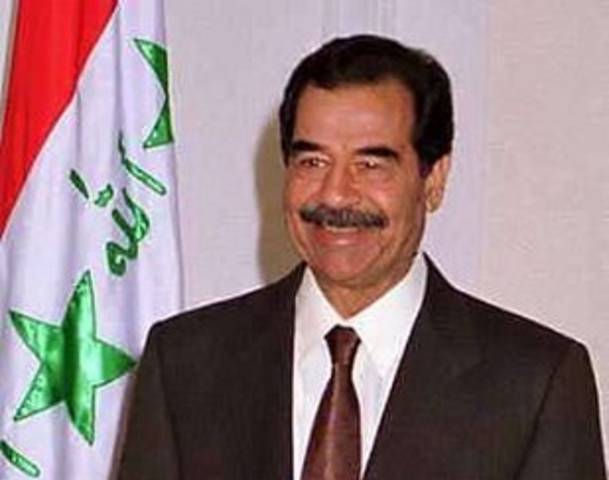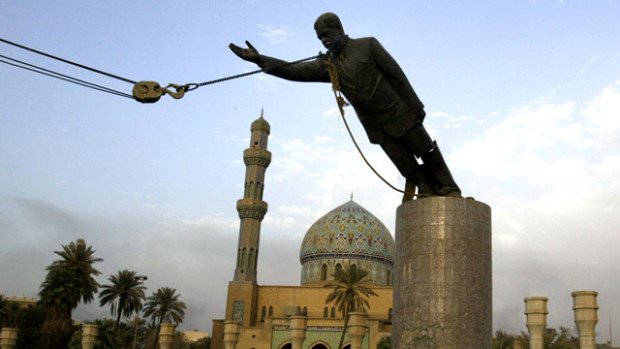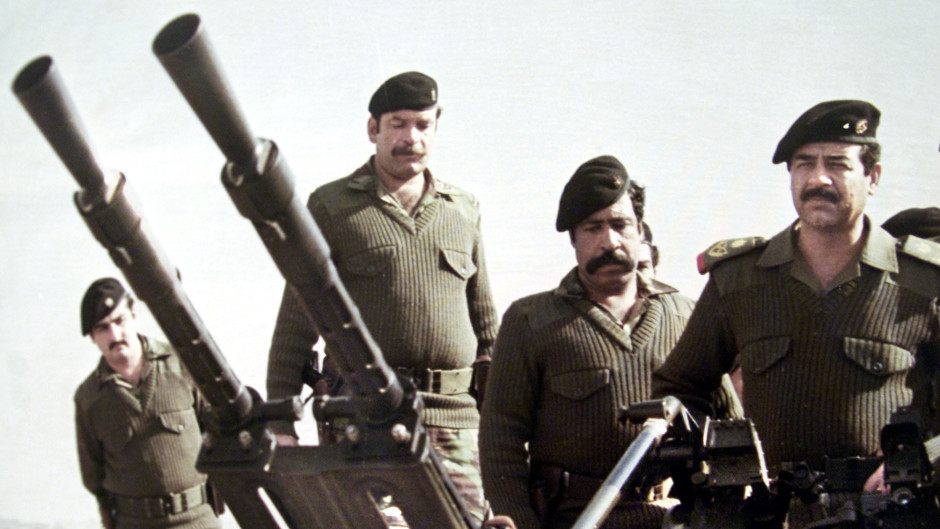As my field of research and teaching is in comparative politics, I have kept files on virtually every country in the world for decades. They consist mainly of magazine and newspaper articles, and students find them handy when researching term papers.
My filing cabinets would soon have no room for new pieces if I didn’t occasionally thin them out, by throwing away articles no longer important or relevant.
Last week I was doing so with the Iraq files — the file folders were rapidly reaching their capacity.
It was an interesting exercise, especially when I came across newspaper articles and opinion pieces in the run-up to the American invasion in March 2003. Eleven years after the fact, with Iraq in complete turmoil yet again, many read like fantasy and wishful thinking.
As early as Dec. 28, 2001, just two months after 9/11, the National Post printed an article by Rich Lowry, “The Liberal Case for Attacking Iraq.” Lowry, editor of the conservative American magazine National Review, called on even “owlish professors and liberal columnists” to become “left-wing hawks.”

He provided six reasons: Saddam Hussein was flouting numerous UN resolutions (including the calls to destroy his “weapons of mass destruction”); women had little freedom in Iraq; 500,000 children had died since 1991 due to UN sanctions, so the “truly humanitarian position” was to overthrow Saddam, thus eliminating this problem; it was necessary for effective arms control; it would allow Muslims to practice their religion in peace; and it would allow for proper nation-building. Liberals, he concluded, should “put the liberal back in liberate.”
On Aug. 15, 2002, TV personality Ezra Levant, in another National Post column, “Why Canada Should Declare War,” chided “our pusillanimous European allies” as a bunch of fearful pacifist appeasers. And he accused then Liberal foreign minister Bill Graham of hiding behind the UN, instead of following the lead of the United States.
As war loomed, the National Post’s Andrew Coyne, on March 7, 2003, in “12 Arguments Against the War; Rebutted,” did Lowry six better. It would not be a unilateral American action, he wrote, since “more than 30 countries,” including six Arab ones, had declared their support. It was not unprovoked, but was rather a continuation of the 1991 Gulf War, and it met the standards of international law, since Saddam had failed to comply with 17 UN Security Council resolutions since then, and Iraq had never “produced a scrap of evidence to suggest it had destroyed” its “massive stockpiles of chemical and biological weapons.” The fact that President George Bush was willing to take the risk of going to war, concluded Coyne, “suggests how great he believes the risks of inaction to be.”
Four days later, also in the National Post, University of Toronto political science professor Clifford Orwin made the case for a pre-emptive war. In “America is Justified in Striking First,” he suggested that, because of Iraq’s links with militant groups, possibly including “affiliates of al-Qaeda,” the “military aspect of the war on terror does not lend itself to other means.”
Orwin warned that Saddam’s very possession of biological and chemical weapons “qualifies as a global threat. He has used these weapons before and he foresees using them again.” Saddam was, he contended, “a menace to international society.” Finally, the continued oppression of the Iraqi people will end with “their liberation at the hands of the Americans.”
In a follow-up article published on March 21, “The Uncertainty of War,” with the invasion already underway, Orwin remained steadfast in his support and criticized Canada for having “abdicated all responsibility” by refusing its assistance, though he did note that a war may look very different “10, 50, 100 years after the fact.”
Finally, National Post journalist George Jonas, in his March 12, 2003 commentary “Why This Kosovo Dove Became an Iraq Hawk,” pointed to Iraq’s many violations of UN resolutions, especially Security Council Resolution 1441, passed unanimously on Nov. 8, 2002, which had offered Iraq “a final opportunity to comply with its disarmament obligations” that had been set out in several previous resolutions and warned of the “serious consequences” of non-compliance. This resolution, Jonas maintained, would suffice as a mandate for the United States to attack.
Mea culpa time: I was not certain that attacking Iraq was a good idea, and said so in an op-ed, “Our Policy on Iraq,” in the Charlottetown Guardian, March 4, 2003. I, too, noted the equivocation of the Canadian government, but then stated that we were talking about a war “against a man who, even if not directly implicated in terrorism, runs a police state that has killed tens of thousands of its own citizens and launched invasions against adjoining states.” (By 2004, I knew the war would turn out badly, and said so in “Winning, and then Losing, in Iraq,” published in the Jewish Free Press, Calgary, May 20, 2004.)

As the war was winding down, Antony Shadid, from 2003 to 2009 a Washington Post Islamic affairs correspondent based in the Middle East who would die covering the Syrian civil war for the New York Times in 2012, filed a Post article on April 10, 2003, “Hussein’s Baghdad Falls,” in which he wrote of thousands of its residents pouring into the streets “to celebrate the government’s defeat and welcome the U.S. forces in scenes of thanks and jubilation.” They were greeted with “flowers, candy and occasionally, kisses.”
The statue of Saddam in Firdaus Square was, famously, toppled, in a scene captured by television cameras and broadcast around the world.
An article in the Globe and Mail of Toronto, Sept. 23, 2003, “Iraq Makes New Pitch for Foreign Investors,” by Mona Megalli, assured readers that security conditions were improving, and that Iraq was “throwing its doors open to investment.”
A former colleague of mine from when I taught at the University of Calgary, Tariq Ismail, was so optimistic that he planned to help found a new international university in Baghdad, reported the Calgary Herald on Jan. 24, 3004. It would become, he told reporter Robin Summerfield, “one brick in the foundation to rebuild civil society in Iraq.” He hoped to have the university running by the academic year 2008-09.
As we now know, the real war was just beginning. How did so many get it so wrong?
Henry Srebrnik is a professor of political science at the University of Prince Edward Island.

